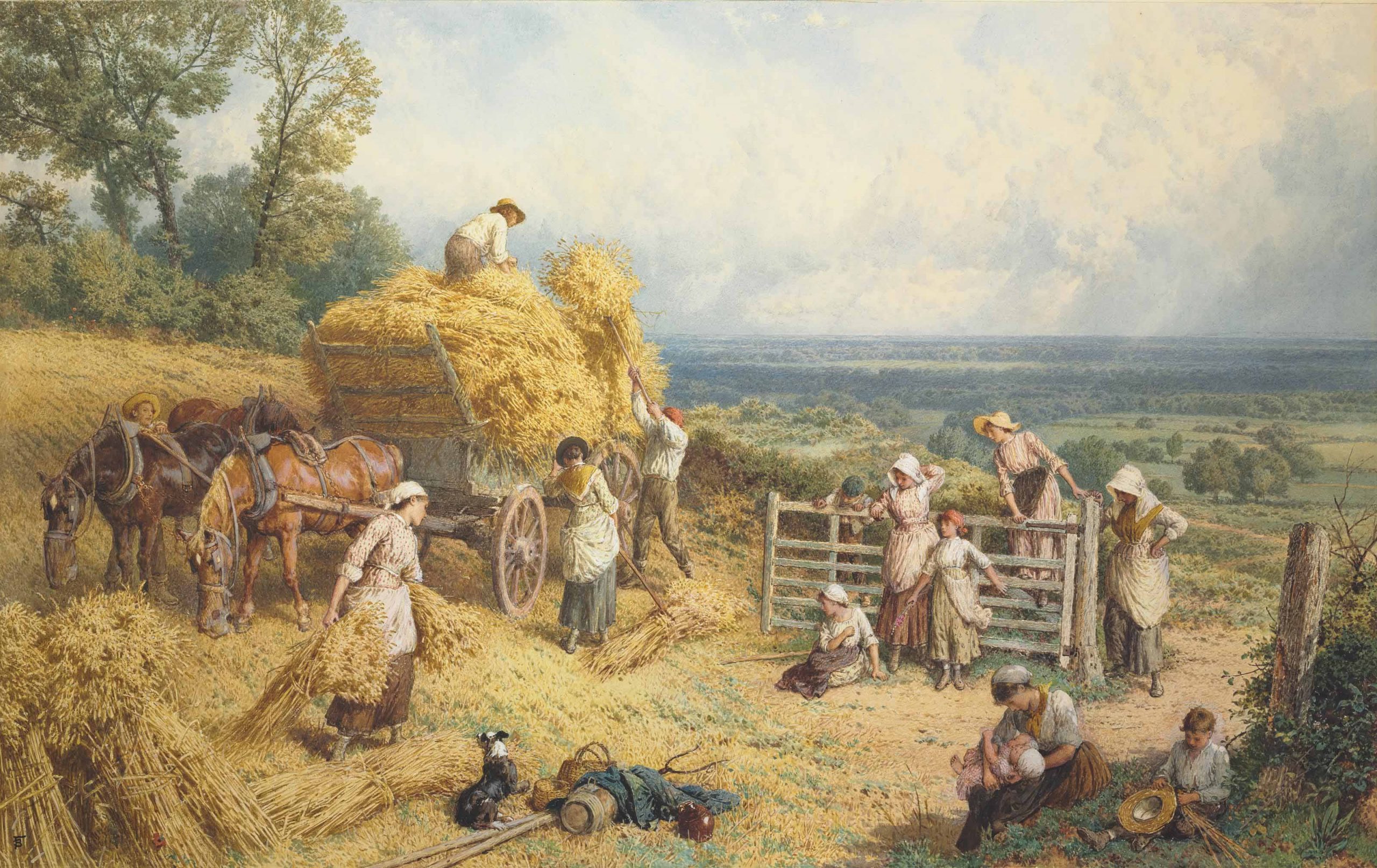The harvest was the heartbeat of the preindustrial economy, and how the associated work was organised provides valuable insights into the character of labour relationships (something we have explored in an earlier blog post). Here, project PI Jane Whittle marks the season with some reflections on a remarkable account of the wheat harvest in north Devon.
Jane Whittle
A few weeks ago I was browsing through Charles Vancouver’s General View of the Agriculture of the County of Devon, published in 1808, and was startled to find the following description of harvest work in north Devon:
The wheat being ready to cut down, and amounting from 10 to 20 acres, notice is given in the neighbourhood, that a reaping is to be performed on a particular day, when, as the farmer may be more or less liked in the village, on the morning of the day appointed, a gang, consisting of an indefinite number of men and women, assemble at the field, and the reaping commences after breakfast, which is seldom over till between eight and nine o’clock. The company is open for additional hands to drop in at any time before the twelfth hour, to partake in the frolic of the day. By eleven or twelve o’clock the ale or cider has so much warmed an elevated their spirits, that their noisy jokes and ribaldry are heard from a considerable distance, and often serve to draw auxiliary force within the accustomed time. The dinner, consisting of the best meat and vegetables, is carried into the field between twelve and one o’clock: this is distributed, with copious draughts of ale and cider; and by two o’clock the pastime of cutting and binding the wheat is resumed, and continued without other interruption than squabbles of the party, until about five o’clock, when what is called the drinkings are taken into the field, and, under the shade of a hedge-row or large tree, the panniers are examined, and buns, cakes, and all such articles are found, as the confectionary skill of the farmer’s wife could produce for gratifying the appetites of her customary guests of the season. Continue reading
Continue reading
